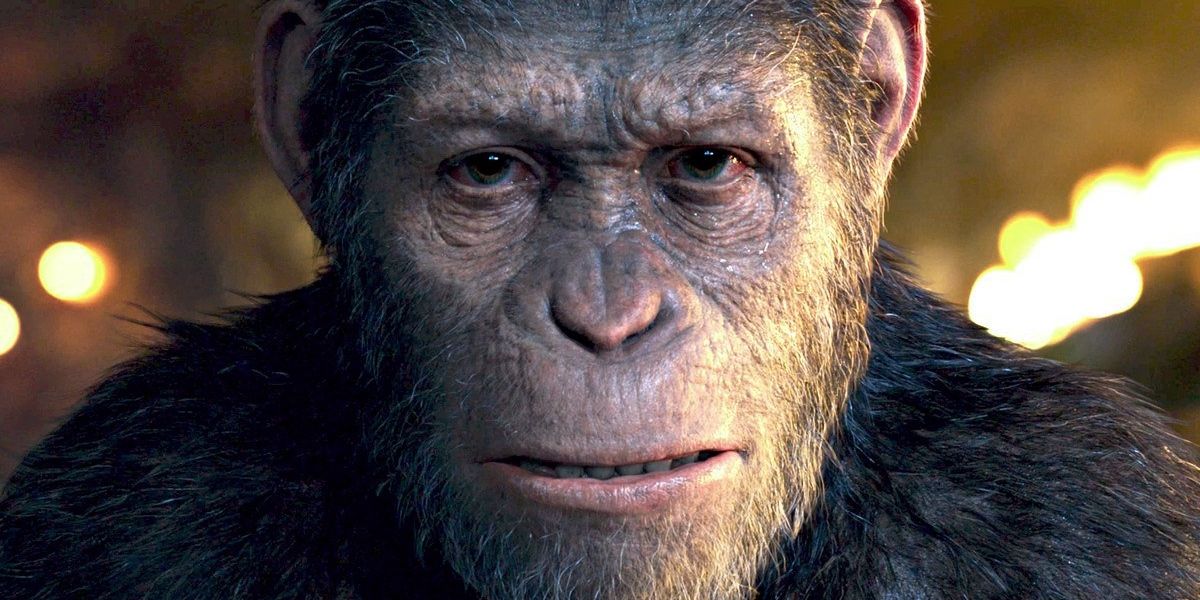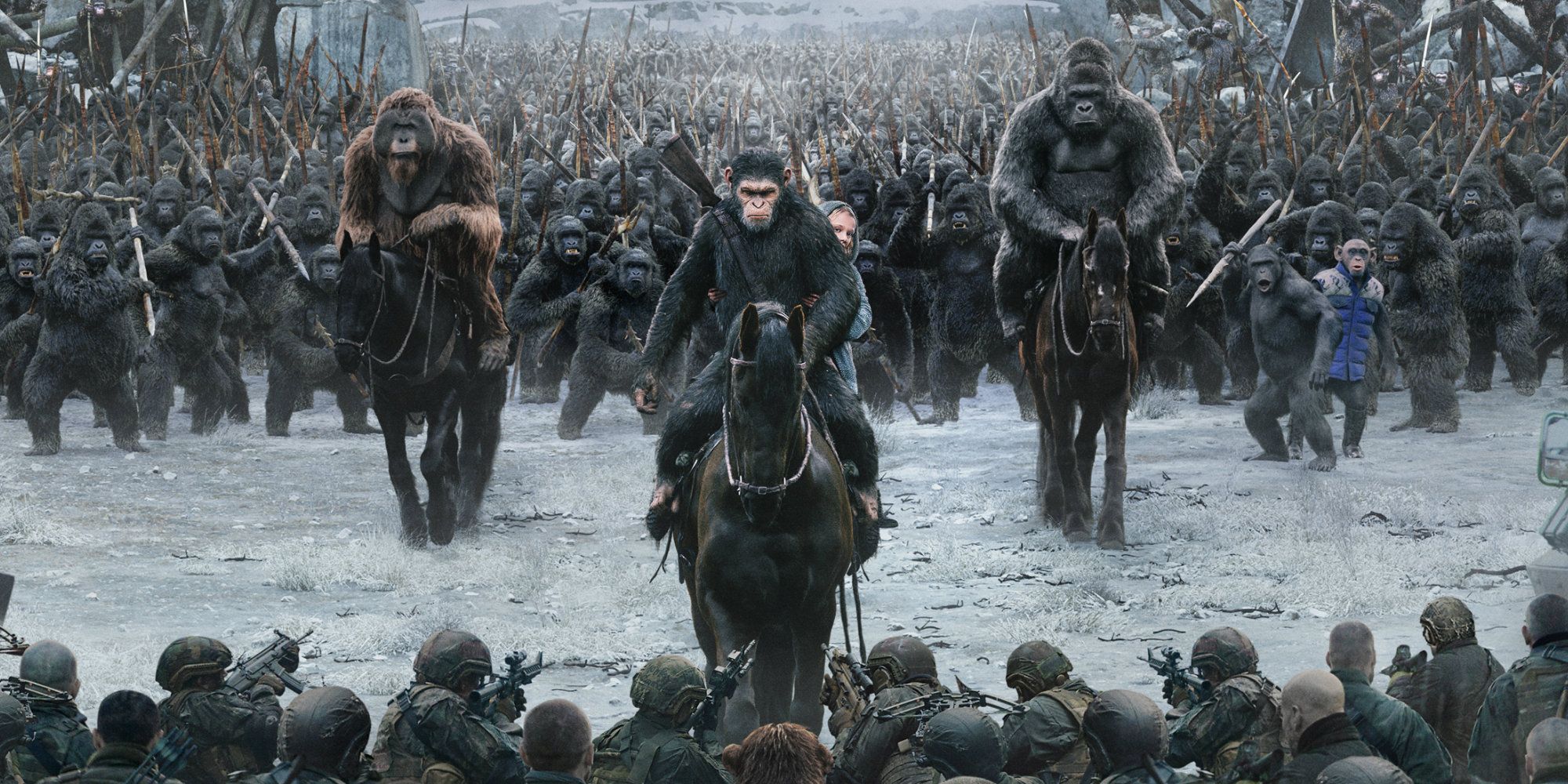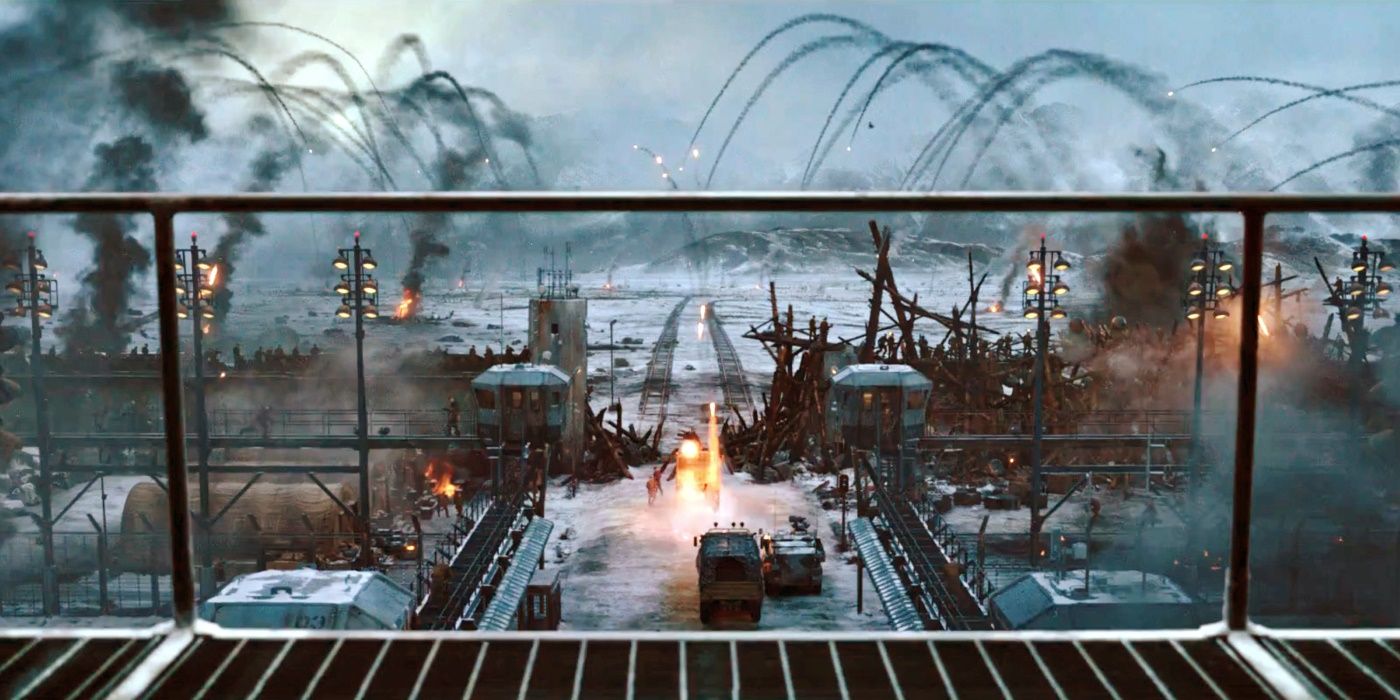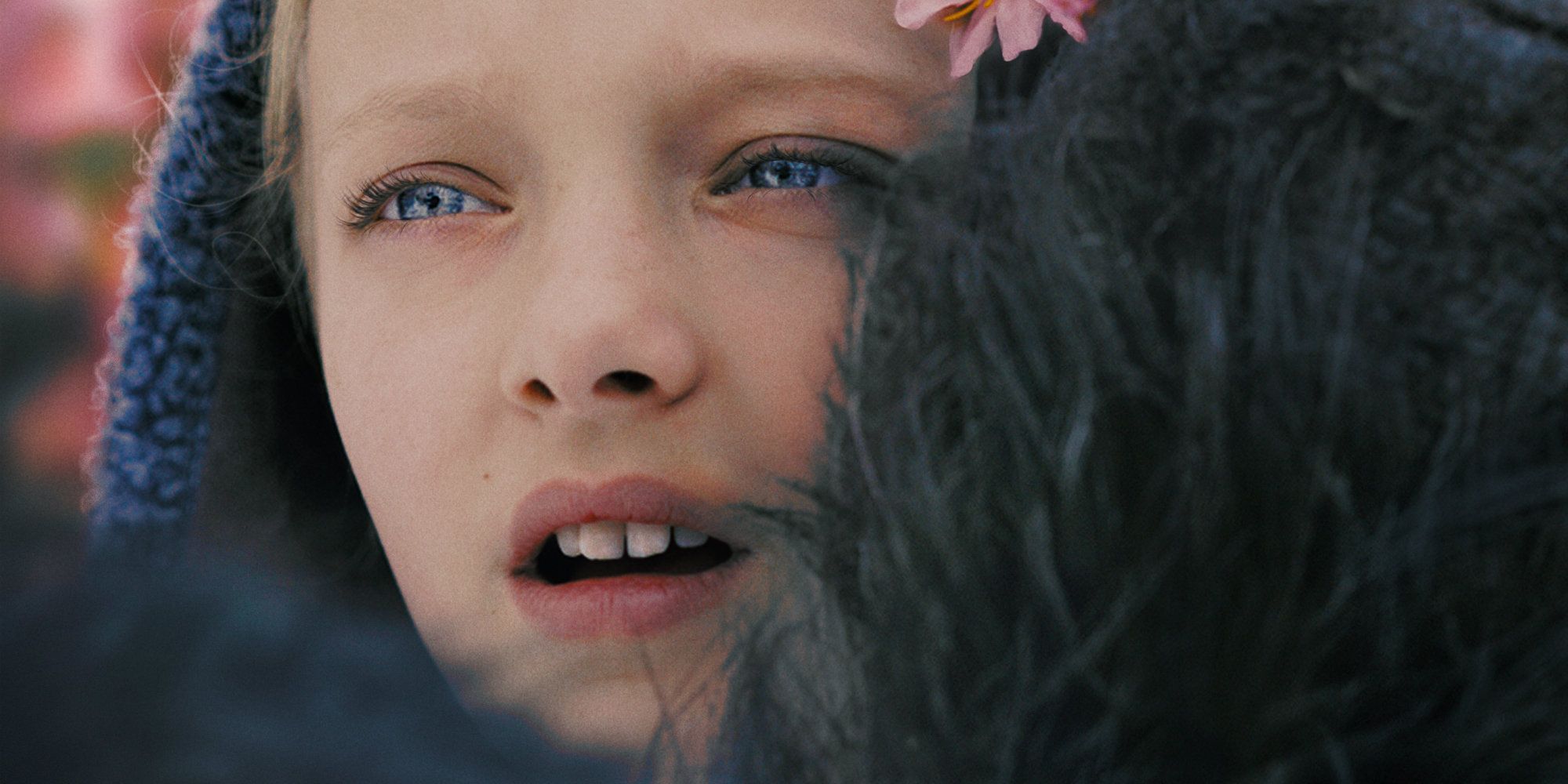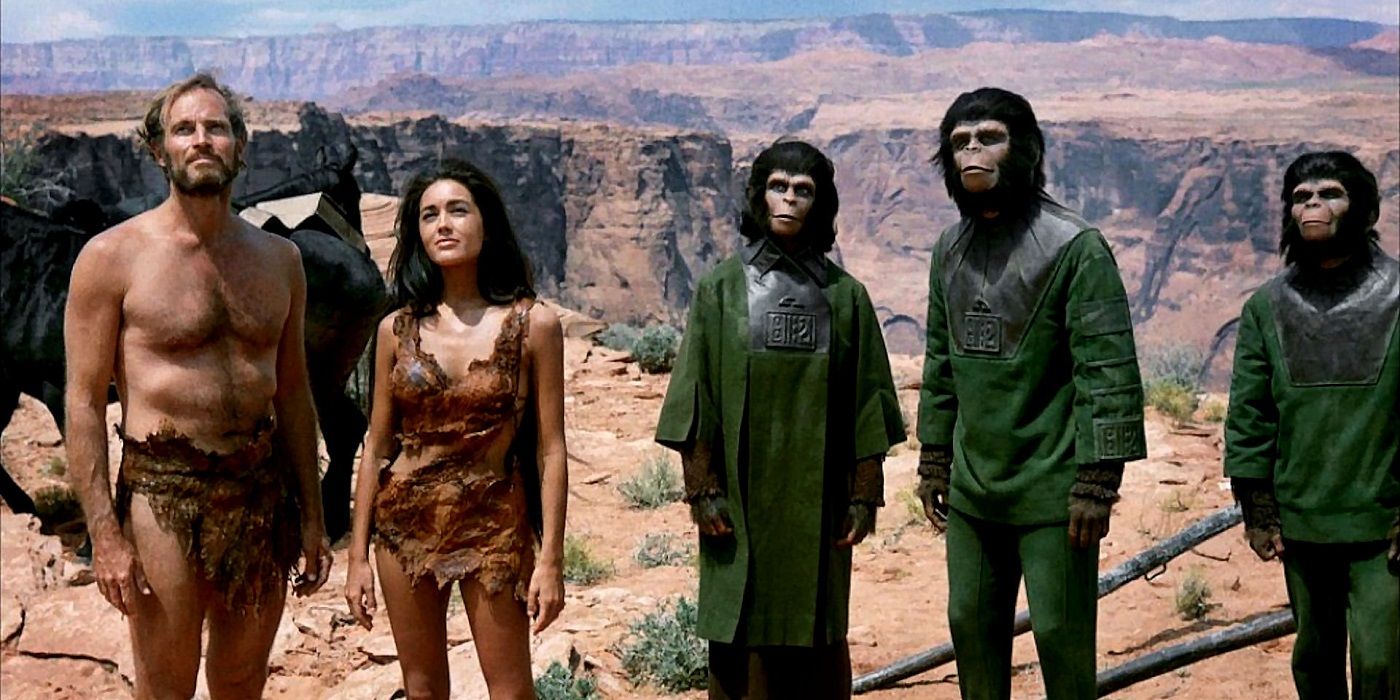WARNING: This article contains SPOILERS for War for the Planet of the Apes
-
The War for the Planet of the Apes may bring an end to the modern Apes prequel trilogy, but its ending sets up much more than fans may realize upon their first, or even second viewing. Typically in films based on speculative fiction or post-apocalyptic worlds, audiences are encouraged to not ask too many question. But with War, the film's director Matt Reeves is encouraging fans to see the seeds being planted for future Apes movies. Ones that prove even if Caesar's story comes to an end in victory, the tale of the planet, and his people is far from over.
In case some taking in the critically acclaimed end to Reeves's Apes trilogy have forgotten the plot details that led Caesar to War, or the specifics of the Simian Flu that ended society as we know it, we're here to help. If the future is to be filled with more Planet of the Apes sequels, then it's important to know which questions are actually answered in War - and which ones are intentionally raised for more sequels to explore.
RELATED: Planet of the Apes' Simian Flu & Science Explained
America's Armies Destroy Themselves
The biggest cliffhanger from the previous film was the impending threat of the American armies coming to battle Caesar's apes. When War begins, that battle has waged for the better part of two years, with Caesar's colony surviving by defending their territory in a secret forest bunker. Obviously the war takes a terrible turn when The Colonel (Woody Harrelson) and his men capture the entire group, putting them to cruel work in rebuilding a former weapons depot turned relocation center. Rebuilding its walls - not against their own kind, but other American armies expected to arrive.
They're coming for people, not apes, as the film slowly reveals just how fanatical The Colonel and his followers have become, believing the war for survival to be of a "Holy" nature. That fanaticism led The Colonel to execute his own men when their infection with the Simian Flu began to show new symptoms, and decapitate the men sent by his superior officers to make him see reason. With no option but to put down this mad dog in their ranks, what is suggested to be the remainder of American armed forces arrive en masse to The Colonel's fortress.
Unfortunately for everyone involved, The Colonel's death can't prevent what's coming. Caesar sets a fuel tank ablaze, starting a chain reaction that wipes out the defending, radicalized army... and buries the rest of the army in the avalanche that follows. And just like that, Caesar and his apes have no human soldiers to fear.
What Happens To the Humans Who Survive
In case the opening sequence of Dawn of the Planet of the Apes is no longer fresh in fans' minds, the spread of the Simian Flu was to blame for the rise of evolved apes, and the decline of humanity. But War makes it clear that the humans who survived past the pandemic that caused the fall of civilization didn't get lucky by avoiding infection - they are all infected with the virus, they just are immune to its most devastating symptoms. That opening sequence claimed a survival rate of "one in five hundred," meaning around 14 million humans were left alive... to face the ensuing violent collapse of the world as we knew it.
But even if the death toll of those survivors escalated into the millions, that's a lot of people left alive. What they didn't foresee, and what War reveals, is that the virus is mutating in ways that are, once again, only harmful to humans. Caesar and his closest allies encounter one young girl unable to speak, and soon find more soldiers afflicted with the illness, who have been shot and left for dead by their own commanding officers. These poor souls, we eventually learn, have been infected with the mutated strain... and loss of speech is just the beginning.
Once the infected are reduced to making grunts, The Colonel informs Caesar, their higher brain function is the next to go. In a cruel twist of fate, it seems, the people left alive alongside apes are doomed to become the "primitive beasts" they once viewed apes to be. It's hard to know if The Colonel's entire prognosis is based on medicine or prejudice (the young girl seems to be just fine, voice aside). Either way, the human in-fighting and quarantine on the horizon will only make things worse, seemingly guaranteeing that humanity's chances at bouncing back are over - at least in the United States of America.
NEXT: [valnet-url-page page=2 paginated=0 text='Caesar%27s%20Fate%20%26%20Original%20Film%20Set-Up']
The Apes Finally Have Their Home
With the army out of the way-- well, technically crushed to death or buried under the snow, we presume, Caesar is finally able to lead his people to the home that his son, Blue Eyes, had scouted while away from the ape colony. The journey, as described by Blue Eyes, takes the colony a vast distance across a desert landscape. It's hard to pin down exactly where the apes are headed without any landmarks or proper names known to the apes, but once Caesar crosses the final mountain range, the home he has been searching for where his apes can live in peace and safety stretches out before him.
It's here where Caesar's story sadly ends, having staved off his death until he could personally see his people saved. Once the mission is accomplished, the wound suffered in his escape from The Colonel's base is free to claim him. Kind final words are exchanged between Caesar and Maurice (Karin Konoval), and Caesar is allowed to rest knowing that his son will learn what his father believed, and just how much he sacrificed in his efforts to deliver them to this place. The location, it is assumed, will be the permanent cradle of their new civilization made famous in the original Planet of the Apes movies.
Caesar's role in the Apes series ends with his death, but the larger world and narrative is suggested to be far greater than his colony. The arrival of Bad Ape (Steve Zahn) helps save Caesar's colony, but his very existence reveals there are other intelligent apes finding ways to survive. Director Matt Reeves has said that it's likely future Planet of the Apes sequels will feature other colonies, other groups of apes who have formed without the strong, moral, honorable leadership of Caesar to follow. Here's hoping Cornelius is truly his father's son.
How The Film Connects (in Spirit) To The Original Movie
The character names and larger story pieces in place may lead the casual, or even passionate Planet of the Apes fans to see the final twists of War as a direct set-up of the original Charlton Heston film. But the devoted purists of the original series will have a difficult time rectifying the difference between the two sagas. Since the original takes place centuries into Earth's future, a direct link is impossible. That being said, director Matt Reeves gives some serious fan service by attaching the conclusion of his trilogy to the Planet of the Apes in a spiritual, if not literal sense.
For starters, the young girl who is unable to speak is eventually given the name "Nova" by Maurice (after the Chevy Nova emblem she is given by Bad Ape, and carries with her). That's a connection to 'Nova' from the 1968 movie, the similarly mute character played by actress Linda Harrison. Where the apes are concerned, the original mythology claimed a Caesar as its own great revolutionary, and the figure that led apes to freedom from their human oppressors.
In the original films that role was played by actor Roddy McDowall, with Conquest of the Planet of the Apes revealing how the revolution had begun. Eventually, Caesar fathered a son, whom he named Cornelius after his own father. In the modern films Caesar plays the same role, with his final mission seeing Cornelius survive as his only son (although named for his wife, Cornelia this time around).
-
Even if it isn't an end point that matches up with the start of the original, Reeves's prequels have sketched out the roadmap for future movies to follow. There are still stories to tell... even if it ends with a Planet of the Apes.

